Gomez - Interview
by Benjamin Howarth
published: 23 / 7 / 2006

intro
Winners of the Mercury Music Prize with their 1998 first album 'Bring It On', Gomez have met with critical indifference since then, but have kept an enthusiastic following. Singer Ian Ball chats to Ben Howarth about his band's new album 'How We Operate'
As this year’s parade of contenders for the Mercury Music Prize will surely be contemplating in their darker moments, a victory in this contest is no guarantee of either long term commercial success or critical approval. Gomez are one band who are seen to typify the phenomenon that has been called the Mercury curse, as critics have spent the rest of their career lambasting them for having the nerve to be popular with the previous generation of critics,and all of those have now moved on to the broadsheet newspapers, having erased everything they ever wrote before from their memory. The problem with the Mercury Prize is that the judges seem not to be selecting the best album, but the one that will make them look the most daring. Sadly, listenability rarely counts for much in the eyes of the panel, as anyone who made the mistake of buying albums by Roni Size, Talvin Singh or Miss Dynamite learnt the hard way. But Gomez’s debut album, 'Bring It On', for which they won the prize, was a good album. Did it deserve to win? I really don’t know, since I can’t remember what else was nominated. But Gomez, having won the prize, were presented as being a different kind of band to that which they really are. 'Bring It On' was not a one off, but a first step for a band with three fine vocalists, songwriters and plenty more ideas. Their follow up album, 'Liquid Skin' was widely deemed a failure, but discerning listeners noticed that it was a more consistent and enjoyable record than its predecessor. Each album since has got less and less attention in the media. All have, in fact, provided fans with songs the equal of anything the band has written before. Thus, the critics indifference hasn’t stopped people listening to Gomez, and many of those who continued to buy the records were delighted this year when the band released their best record to date, 'How We Operate'. The joy of this album is that it harks back to a time when the tunes were the thing, and we are presented with 12 crackers, most of which sound like they could be singles. I imagine many readers of this website will have been tempted by the delights paraded in the 2006 Mercury shortlist. Having had the misfortune to hear much of what is on offer (if anybody recommends you the Hot Chip album, I suggest you punch them firmly on the nose), can I politely recommend this album instead. You may even be listening to it in years to come, something I doubt I shall be doing with any of the albums the panel has foisted on us. I spoke to Ian Ball in mid-July, as Gomez embarked on a few festival dates in this country. Ball met his bandmates in his hometown of Southport, but now lives with his wife in LA, so this was a rare visit back to the UK. He spoke to me whilst Thom Yorke’s new album, 'The Eraser', blared out from his stereo, and made for an enthusiastic interviewee. Listening back to his answers, I noticed a curious shift in mood during the interview. When we talked about the vagaries of the music industry, I sensed a resigned weariness, to the point where I wondered how someone who seemed jaded with life in a band had made the best album of his career. But then, as soon as we talked about his music, Ball sparked into life, answering with unhidden passion and clarity. Ball remains proud that so many people like his band’s music, clearly loves playing live, and is therefore totally unbothered that the music press has decided to erase Gomez from history. The NME once began a review of a new single by the band with the words, “Destroy, Destroy, Destroy”. Gomez’s response was, it seems, simply to shrug. Who can blame them? PB : Now the album has been out for a little while, how do all the band feel about it? IB : You know what happens is that once you finish a record you never hear it again. But what I particularly remember is that we did it very quickly - we started in November and we had it done by Christmas. At Christmas I went back home to Los Angeles and I didn’t really hear it until we started playing it live. Sometimes you get so immersed in something that once it is done you’ve no need to hear it again. I sort of imagine that Peter Jackson has never seen any of the Lord of the Rings films, you know… probably so sick of looking at them on a computer that he never ever wants to see them again. So anyway, I hear that it's really good! PB : Do you feel that the songs are going down well live when you play them? IB : Yeah, I guess that’s the most obvious thing, we can see if they fit in with the set, if they flow with the other songs that obviously people know more, and it's already at the point where they don’t feel like new songs. They seem to fit in well. PB : Certainly, it seems to be being appreciated at this stage. It has been getting some good reviews, for example… IB : Really?! Surely not over here… PB : Yeah, 'Mojo' gave it a good review, for example, and I gave it a glowing review! But, I see what you mean. It seems that after the rapturous response you had in 1998, the press since have been getting steadily less interested. How do you all feel about this? IB : I just completely ignore it, and go to America where they don’t think like that. As it happens, I was speaking to the lead singer from the Zutons last night, and he is getting to the point, and is recognising it very quickly. They are on the second album, and he was just like, “I have had enough…” PB : They are very similar to you in that they had a very successful first album, and got nominated for Mercury - you won it of course - but, now with the second album, parts of the music press already seem to be turning their backs to them. IB : It is impossible in England, man, it really is. There’s the public side of things and it makes it very hard. It's not surprising, though disappointing, that we get so few bands surviving past their third record in this country. PB : So in fact, instead of having bad luck when you stopped being flavour of the month, it enabled you to do the sensible thing and concentrate on other countries beyond Britain? IB : Definitely. Look at what were the best band of our times, the Beta Band, who just couldn’t stay together. And in the States that would never happen. The very best bands are always accepted, whatever period of their career they are in. PB : Well, look at REM, the perfect example… IB : Precisely. They had, what, seven albums out before they had a really huge hit, almost a decade into their career. Even U2 didn’t have a huge hit record for quite a while. Here, if your second album does well, then its all over. PB : But, with you, the ridiculous thing is that even though nobody writes about you anymore, the albums still seem to do well, and all of your fans really like them. IB : And, most importantly, people come to and seem to really enjoy coming to the shows. And that’s cool. In fact, its been amazing in this country for us. I think we’ve been a little bit surprised, because, having spent so much time in the States, we felt that it wouldn’t have been unnatural for everybody here to have assumed we’d broken up. Then we turned up, and said, “Oh, they’re all here still. Let's go!” PB : Touring in Britain is a much less expansive process. The journeys between gigs are so much shorter, for example. Is it easier touring here? IB : Its not easier. It still poses the simple problems of trying not to lose all the shit that you’re carrying around, but it’s a little bit stranger. It feels like you are on more of a holiday than in the States, as here it is all the more fast paced and business like. Some venues are a few minutes down the road, whereas in the States it is certainly a lot more daunting and ominous. You can end up making 40 hour trips there, which obviously wouldn’t happen here. PB : You’ve spent now an awful lot of your life on the road, playing concerts. Do you have good relationships now with bands that you’ve toured and met up with over the years? IB : Yeah, and funnily enough, a lot of the bands that we have particularly good relationships with are Australian. The reason for my hangover today is that I was out with Luke Steele from the Sleepy Jackson last night, and he is starting his tour tonight, so that should be interesting for them. I really like doing festivals, because you get a chance to catch up with people. It's funny what musicians talk about. They’re always complaining about something. Usually, it's about being physically and mentally exhausted. At festivals, it's always a huge group of people who look like they’ve been in a war. PB : It's often easy for us onlookers to forget, we might just see you for a month of the year when the record is out or you are on tour. Do you feel like you have a pretty much constant parade of gigs and commitments in between making albums? IB : Well, we did about five years ago take six months completely off, which was a big luxury, but I ended up producing another band, so I spent it in the studio anyway. I didn’t even realise I was doing it really, but that is what I am used to. But, yeah, at the end of this year and the start of the next year, we will have a few months off, but I’m sure I’ll find something to do with them. PB : How do you feel about your audience. Obviously, over the years you have been touring, certain people have drifted off, and other people will have started listening to your music, but do you think the essential character of the audience has stayed the same? IB : It's really hard to tell most of the time. But we do have people who will go to 20 shows on a run, who will travel for 24 hours non stop just to see us play, and we are left thinking, “How and why are you doing this?” But, of course, it's fantastic to have that. PB : Do you find yourselves being compelled to change the setlist around to keep them all interested? IB : Yeah, if we start seeing the same faces, we always ask what tunes they want, and we’ll try for them. Of course, they always pick ones that we’ve never played before. Bizarrely enough, it is always 'Army Dub' off ‘In Our Gun’that they want to hear. I have no idea why because it is essentially just Olli and a computer, but that is the one that they seem to want. PB : Do you jiggle around the setlist. Are there a large bank of songs that you can call on? IB : Um, we have quite a lot. We’re not by any stretch in the Pearl Jam area of the world where we can play every song we’ve ever written. That would be the ideal situation though. I have a suspicion that Radiohead may be in that area now too, I saw them recently, and they may well have now played every song they have ever written, after the first record anyway. A realistic guess for us is that we can play about two thirds of all our songs. But a lot of the time you end up doing mostly the same set, because once you have worked out a really good setlist, which in the sense of a flow, works really, really well,and keeps the mood going for the two hours, you want to keep using it. It is really hard once you have played a really blinding gig to then change the setlist. So you have to balance out what works in a live situation, with the five nutcases that have flown halfway around the world and want to hear 'Army Dub'. So it's tricky. Sometimes we do and sometimes we don’t, basically. PB : Do you get nervous, you or the rest of the band, when you get onstage ? IB : Nah, (laughs). Not even slightly. PB : Did you at the beginning of the band? IB : I personally never did. I know Ben did. He used to get really stressed out by stuff, I don’t know why. But that only lasted six months. I have always been really calm. I don’t know why. It just never affected me. I didn’t worry about it. PB : Just moving on to the songwriting, obviously you have several songwriters all pooling their songs, but on this new album it sounds like there is a more natural flow to it. Did you spend more time working out the songs as a group this time? IB : Um, it wasn’t really written more as a group than any of the other albums to be honest. I think songwriting is almost always one person writing almost all of the song. Should any snags appear, how we lead from one part to another, then we’ll offer friendly advice. The reason this album sounds more together is because it was all recorded at the same time. PB : Is this the first time you have done that then? IB : No, we’ve never done it this quickly, and we’ve never recorded all the songs in the same room with the same mics and the same equipment. Our old school way of doing things would be to mix recordings from home, from the sound check and from the studio, but this time we didn’t have the time to do all that stuff, mixing it all together in the same two weeks. So the uniformness isn’t from any new concepts. That’s what people always try and say in biographies, but really that is just bollocks. The reason it sounds like it does is because it was done quickly in the same room. PB : Was the songwriting done just as quickly ? IB : As far as I know. Certainly all of my songs were written in the three months leading up to the recording, and I think that is the same for all the others. The only part that is older is a little bridge in the 'How We Operate' song, which we have had from eight years ago. So essentially, that record is the situation that was going on last year. Whatever happened in 2005, that is what went on the record. I don’t even really remember when the writing happened. It just did and then we recorded and then it was done, which is good, because thinking too much as a band is usually dangerous. PB : Final question, what are the remaining ambitions you would love to achieve before you stop and…. IB : Before I go to the great casket in the sky! Ha ha… Well, I don’t know really. You know what, I’m going to go for playing a gig at the Hollywood Bowl. That would be wicked. I’ve seen so many shows there now, and I always think that this place would be great to play. So I’m going to go for an old fashioned cheesy one and say I’d like to play the Bowl. PB : Thank you. The photographs that accompany this article were taken exclusively for Pennyblackmusic by Anna Gudaniec
Band Links:-
https://www.gomeztheband.com/https://www.facebook.com/gomez/
https://twitter.com/gomeztheband
Picture Gallery:-

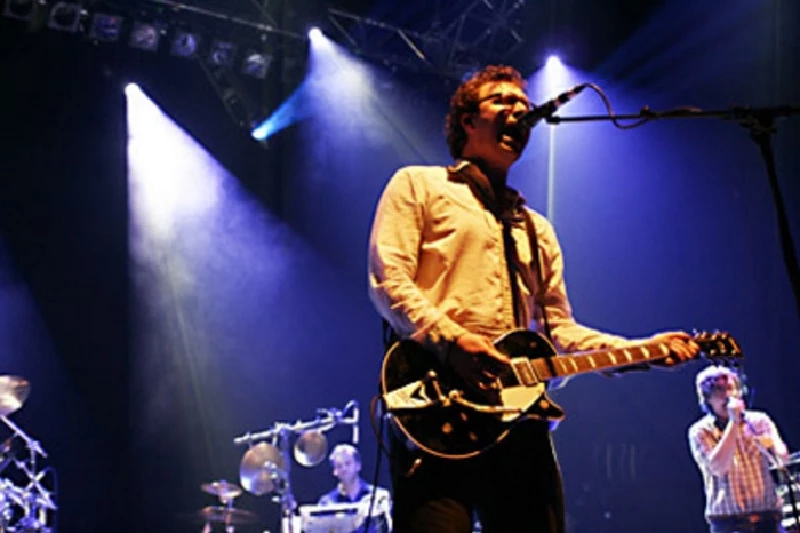


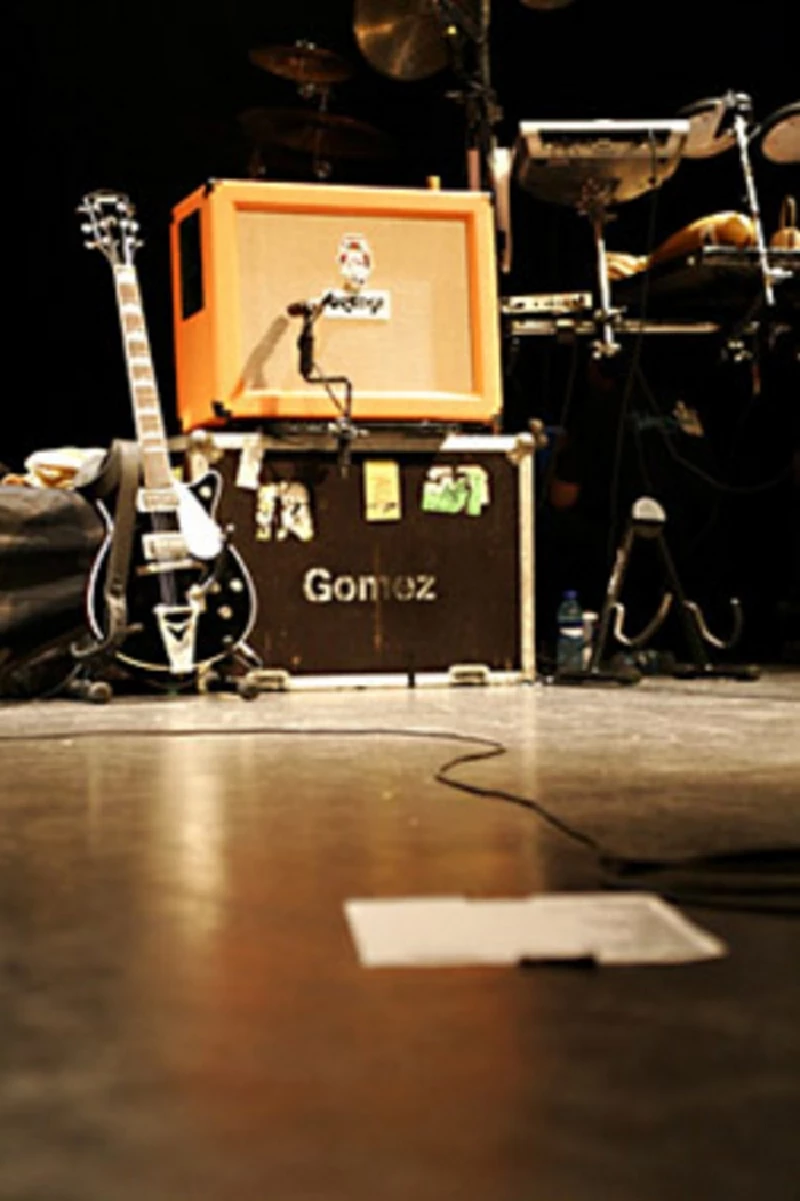
interviews |
|
Interview (2011) |
| In our second interview with them, Mercury Prize winning band Gomez's drummer and percussionist Olly Peacock speaks to Ben Howarth about their new and seventh album, 'Whatever's On Your Mind' |
live reviews |
|
Roundhouse, London, 21/6/2011 |
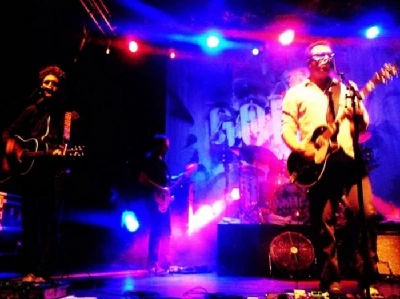
|
| Mercury Music Prize winners Gomez have always been more out than in fashion, but Ben Howarth watches them play a near perfect set to promote their new album 'Whatever's On Your Mind' at the Roundhouse in London |
| Hammersmith Apollo, London, 23/11/2006 |
favourite album |
|
Bring It On (2018) |
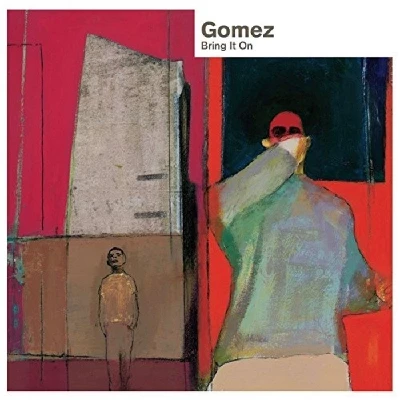
|
| Cila Warncke finds that an outsized 20th Anniversary Edition four CD re-release of Gomez's Mercury Music Prize winning 'Bring It On' captures the brash charm of their youthful debut |
features |
|
Gomez (2006) |

|
| Mercury Prize winners Gomez recently released a new album 'How We Operate' and toured the United Kingdom. Anna Gudaniec photographs them exclusively for Pennyblackmusic at Shepherd's Bush Empire in London |
reviews |
|
How We Operate (2006) |
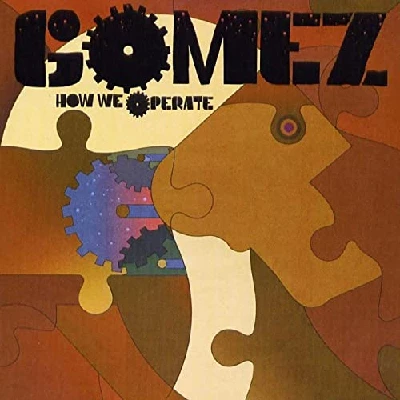
|
| Self-deprecatingly, but excellent comeback album of sorts from the under rated and out-of-fashion Gomex |
| Split The Difference (2004) |
most viewed articles
current edition
Carl Ewens - David Bowie 1964 to 1982 On Track: Every Album, Every SongArmory Show - Interview with Richard Jobson
John McKay - Interview
Colin Blunstone - Thalia Hall, Chicago, 16/7/2025
Bathers - Photoscapes 1
Billie Eilish - O2 Arena, London, 10/7/2025
Loft - Interview
Visor Fest - Valencia, Spain, 26/9/2025...27/9/2025
Sir Tim Rice - Interview
Robert Forster - Interview
previous editions
Heavenly - P.U.N.K. Girl EPManic Street Preachers - (Gig of a Lifetime) Millennium Stadium, Cardiff, December 1999
Beautiful South - Ten Songs That Made Me Love...
Peter Perrett - In Dreams Begin Responsibilities Interview Part One
Boomtown Rats - Ten Songs That Made Me Love....
Oasis - Oasis, Earl's Court, London, 1995
Coldplay - Wembley Arena. London, 16/8/2022
Prolapse - Interview
Trudie Myerscough-Harris - Interview
Pixies - Ten Songs That Made Me Love...
most viewed reviews
current edition
Davey Woodward - Mumbo in the JumboSick Man of Europe - The Sick Man of Europe
Lucy Spraggan - Other Sides of the Moon
Blueboy - 2
Suzanne Vega - Flying With Angels
Bush - I Beat Loneliness
Amy Macdonald - Is This What You've Been Waiting For?
Phew, Erika Kobayashi,, Dieter Moebius - Radium Girls
Alice Cooper - The Revenge of Alice Cooper
Cynthia Erivo - I Forgive You
Pennyblackmusic Regular Contributors
Adrian Janes
Amanda J. Window
Andrew Twambley
Anthony Dhanendran
Benjamin Howarth
Cila Warncke
Daniel Cressey
Darren Aston
Dastardly
Dave Goodwin
Denzil Watson
Dominic B. Simpson
Eoghan Lyng
Fiona Hutchings
Harry Sherriff
Helen Tipping
Jamie Rowland
John Clarkson
Julie Cruickshank
Kimberly Bright
Lisa Torem
Maarten Schiethart